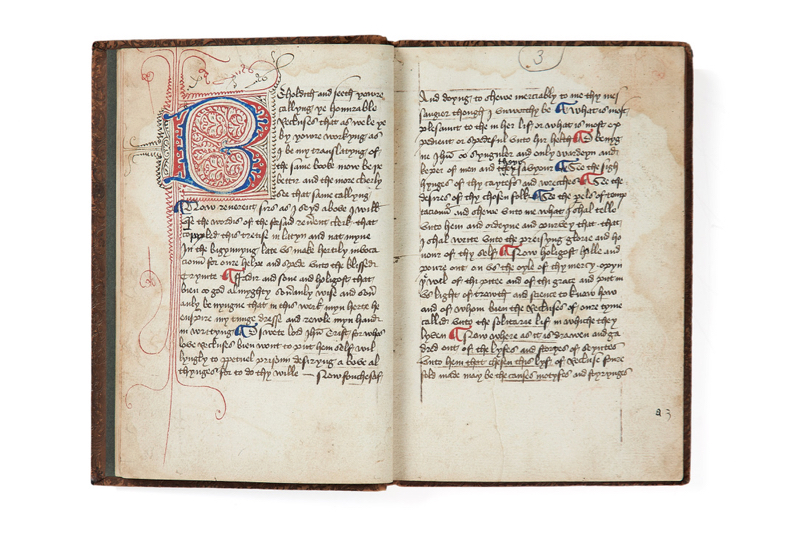An export ban has been placed on the only complete surviving manuscript of a 15th century “guide for hermits”.
The Under-Secretary of State for Arts, Helen Whately, has placed an export bar on "The Myrowr of Recluses", a Middle English translation of the latin "Speculum inclusorum" made in the early 1400s, in the hope that a UK buyer can be found.
The richly-decorated document details the nature of the anchoritic lifestyle, the reasons why people seek to become a hermit, and what can be expected in this world and in heaven for those who fulfil the obligations of the vocation.
England in the Medieval period saw several famous hermits, such as Julian of Norwich, Richard Rolle and Saint Simon Stock. Hermits would separate themselves from the rest of society, either in wilderness areas, caves, or walled-off rooms, and commit to a routine of prayer, meditation, spiritual reading and physical work for the rest of their life. Some people became hermits as adults: but others, like Saint Hildegard of Bingen, entered the vocation as children, called "oblates". It is estimated that there were around 200 anchorites or hermits in England in the 13th century, with more women adopting the lifestyle than men.
The only other known version of the "The Myrowr of Recluses" is an incomplete manuscript dating from the mid-15th century, currently held by the British Library. The discovery of the new manuscript is of great significance for the study of the lives of medieval women and anchorites, according to the Reviewing Committee on the Export of Works of Art and Objects of Cultural Interest. The committee requested that the Government place an export bar on the text, given the value it had for studies of the production and later collection of medieval documents, as well as for historical scholarship. The committee stated that the manuscript was of “great importance to our understanding of later medieval thought and society. It is a fascinating treasure that deserves to be saved.”
The decision on the export licence application for the manuscript will be deferred until 13 April 2020. This may be extended until 13 August 2020 if a serious intention to raise funds to purchase it is made at the recommended price of £168,750.



 Loading ...
Loading ...